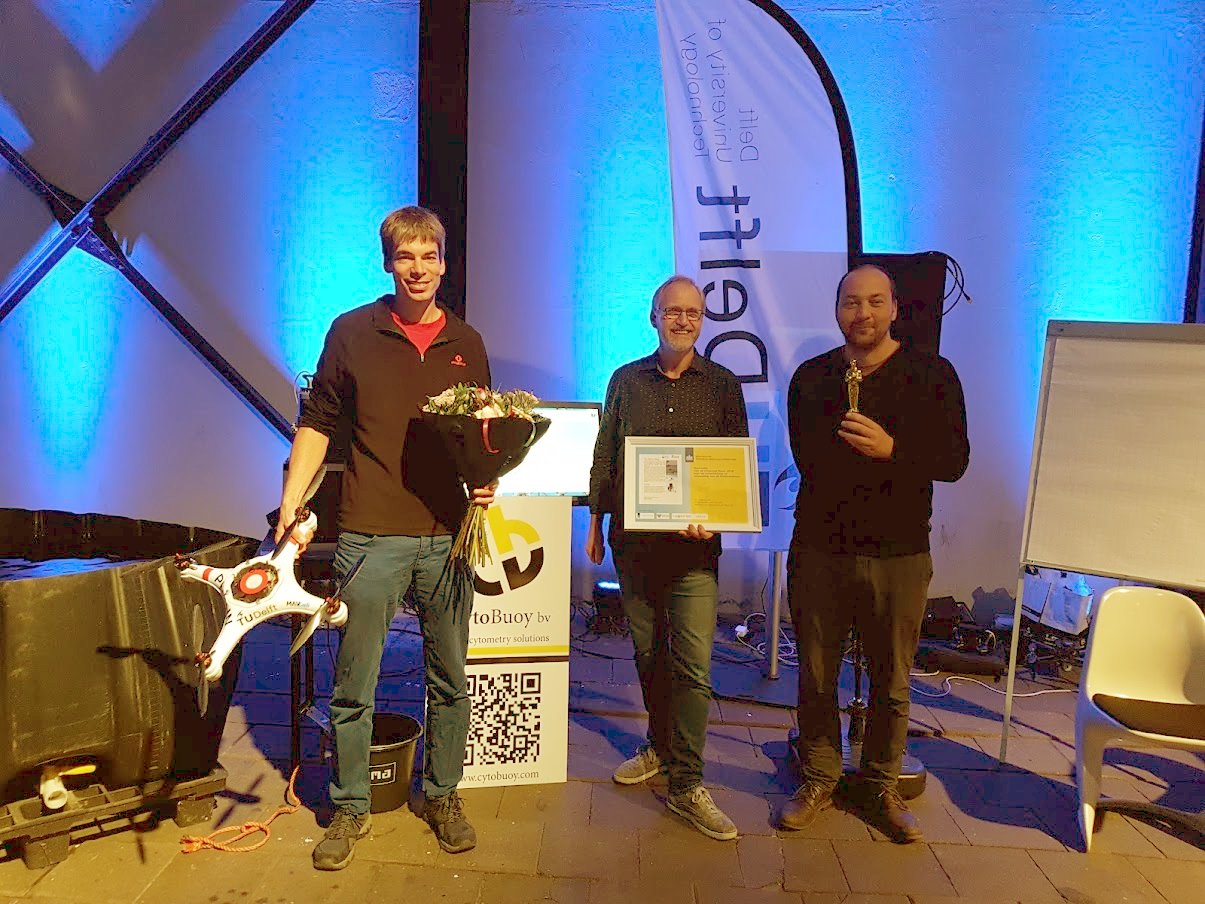MAVLab to develop Pelican drone for Rijkswaterstaat
The ‘Drones in Water Management’ event organised by Rijkswaterstaat (the national public works agency) on 23 October saw the kick-off and signing of a new project from TU Delft's Micro Air Vehicle Lab. Researchers and students from the MAVLab will be working with Rijkswaterstaat, companies and other government bodies to develop a Pelican drone whose uses will include tracing blue-green algae in water. The Pelican drone was also awarded a Drone Oscar by Johan Jacobs, director of Innovation at the Ministry of Infrastructure and Water Management, for the most innovative drone solution for water management.
Pelican drone
Kevin van Hecke of the MaVLab: “The Pelican drone is a project which combines two new technologies to improve water quality management: drones and flow cytometry. A flow cytometer (in this case from the company CytoBuoy) enables you to see quickly and accurately what is in the water, but to do this you have to be able to quickly collect and supply fresh water samples. We're doing the latter using a drone.
By equipping the drone with a multi-spectral camera for remote sensing, it can work smartly and innovatively to select interesting locations for taking water samples. The samples are then analysed using the CytoSense which is able to automatically detect what particles are present in the water. This will make rapid plankton analysis possible in the future and automatic testing for blue-green algae, for example. Our plan is ultimately to use the drone for underwater sampling as well, which is why we called it the Pelican drone.”
The MAVLab is working on this project together with RWS/WVL (the client for Phase 1 is Aad van den Burg), companies such as Cytobuoy, and other government bodies. In 2018 a floating drone will be developed, followed by a diving drone in 2019.
Contact information
Bart Remes (MAVLab TU Delft) +31 15 27 83707, B.D.W.Remes@tudelft.nl
George Dubelaar, (CytoBuoy) +31 348 688 101 info@cytobuoy.com
